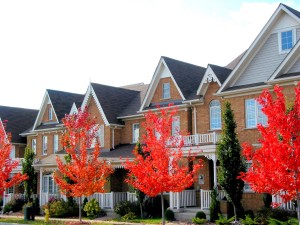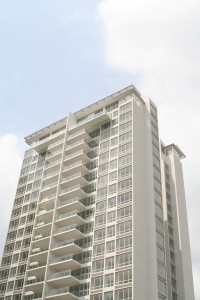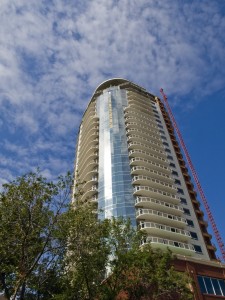 This past weekend, I was mentioned in a Ken Harney article (shameless self-promotion). He called me two weeks ago to revisit a topic that we had earlier discussed: the possible return of FHA Spot Loans for Condominiums.
This past weekend, I was mentioned in a Ken Harney article (shameless self-promotion). He called me two weeks ago to revisit a topic that we had earlier discussed: the possible return of FHA Spot Loans for Condominiums.
Following the article, I was contacted by a colleague who asked me if I thought that spot loans would return. Because if they do, FHA Condo Approvals may not be as valuable to associations as they are now. This could pose a threat to our livelihood.
I explained that the spot loan program was eliminated due in part to abuse in the mortgage industry. It allowed for single loans in condominiums that were not on the FHA approved condominiums list. To complete the loan processing, a single questionnaire about the project was completed and if all of the answers met FHA’s criteria, the loan would be allowed.
Problem #1 is that there were really no controls in place regarding who could complete the questionnaire. Even the loan officer (who had a vested interest in the loan closing) could complete the form. This, in and of itself, opens the door to fraud.
Problem #2 is the lack of ability to track how many FHA loans there are within the condominium projects themselves. When a condominium is approved with FHA, it is given a condo ID number. Condo ID numbers were not issued when a spot loan was approved in a condominium.
FHA tracks how many of its loans encumber the units in a condominium project which cannot exceed 50% (*with exceptions). However, when spot loans were used, there was no way to track how many FHA loans existed in these condominiums because there was no condo ID.
There is a lot of pressure on FHA for the return of spot loans. AARP is one of most vocal organizations due to the inability of retirees to obtain reverse mortgages for condominium units which are not on the Approved Condos List. For many retirees, a reverse mortgage may be the only way in which they can afford to stay in their home/condo unit.
In the Harney article, he mentions my attendance at a recent condo Board meeting. One topic at the meeting was FHA condo approval. This was brought to the Board’s attention by a couple who is trying to get a reverse mortgage but can’t because the condominium is not approved with FHA. As it turns out, the condominium is not approvable at this time because it does not make the required contribution to an account dedicated to future capital improvements.
Having the ability to acquire a spot loan in cases like these would help this couple.
 However, the question then becomes, if FHA were to allow a loan here (in a condominium which does not meet its criteria), why not allow them in all condominiums who do not meet this requirement? Why not allow them in condominiums that don’t meet other requirements? Why have standards at all?
However, the question then becomes, if FHA were to allow a loan here (in a condominium which does not meet its criteria), why not allow them in all condominiums who do not meet this requirement? Why not allow them in condominiums that don’t meet other requirements? Why have standards at all?
In addition, by what standards would they allow for spot approvals? Would something similar to a full approval be required? Or would it allow for lower standards than a typical condo project approval but only allow a couple per condominium? How would they track them?
These are all questions that FHA would have to answer prior to making a decision to bring back spot loans.
I do believe that we will someday see the return of spot loans, but I do not think it will be soon. Besides having to answer these questions, it will have to go through the process of law to occur. That, alone, takes quite a while as we know.
Even if they do return, I don’t see much impact on our business primarily because FHA will have to track spot loans and most likely won’t allow more than a handful in a condominium. Secondly, there were more than 50,000 condominiums on FHA’s approved condos list when the spot loan program existed.
Related Articles:
Unleashing the Red Hot Condo Market
Top Photo Credit: (c) Can Stock Photo / elenathewise
Lower Photo Credit: (c) Can Stock Photo / kentoh







 This past weekend, I was mentioned in a
This past weekend, I was mentioned in a